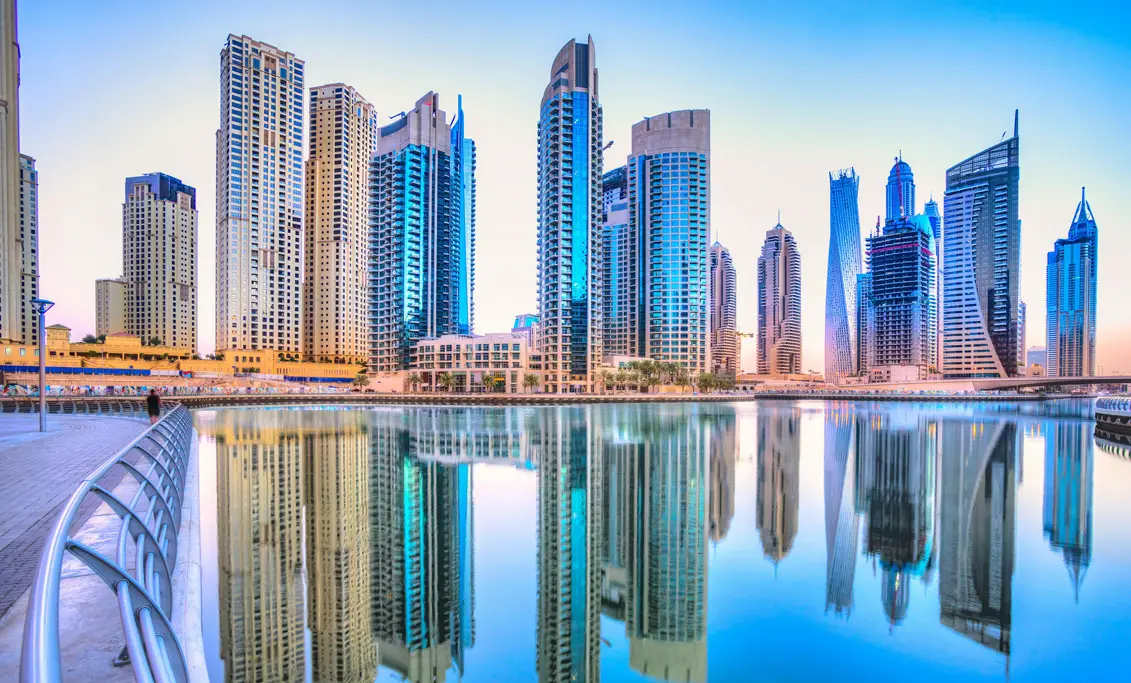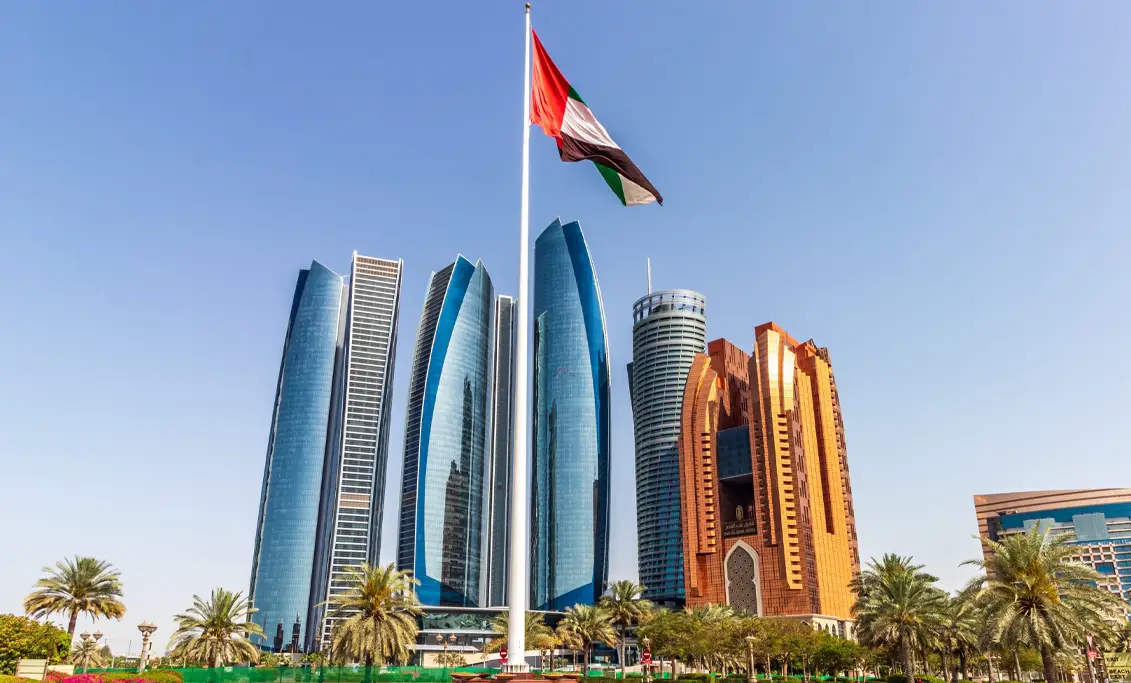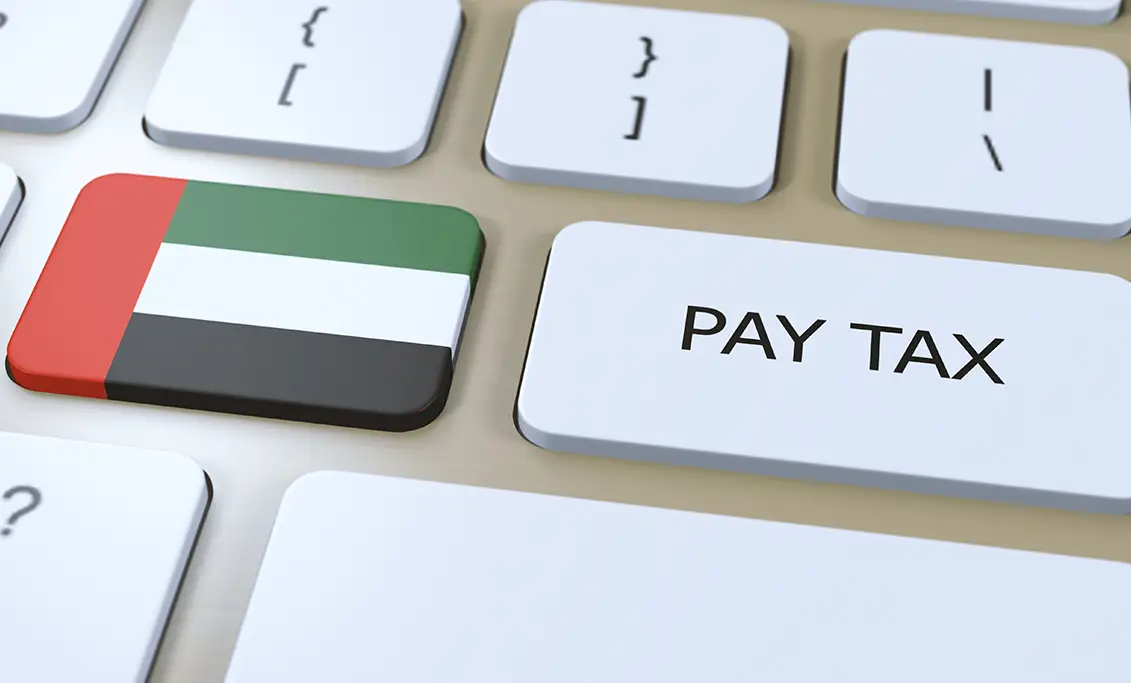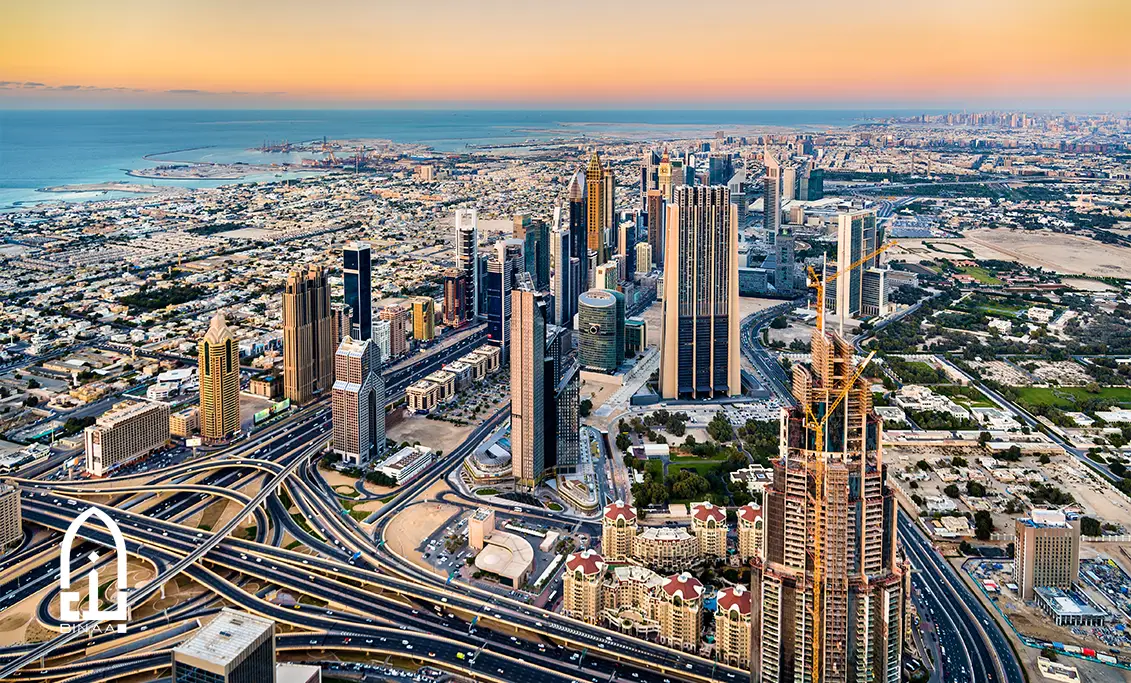Dubai and Abu Dhabi are the UAE's crown jewels, each offering unique investment opportunities. Both cities are renowned for their thriving real estate markets. Investors often find themselves comparing these two dynamic destinations.
Dubai is famous for its vibrant lifestyle and diverse economy. It offers a wide range of freehold real estate options. Abu Dhabi, on the other hand, is known for its stability and long-term growth potential.
Choosing between Dubai and Abu Dhabi for investment can be challenging. Each city has its own set of advantages and challenges. Understanding these differences is crucial for making informed decisions.
This article will explore the key factors influencing investment in both cities. We will delve into real estate trends, economic factors, and potential returns. By the end, you'll have a clearer picture of which city aligns with your investment goals.
Overview: Dubai vs Abu Dhabi as Investment Destinations
Dubai and Abu Dhabi are the UAE's largest cities, offering distinct investment landscapes. Each boasts unique advantages that attract investors globally.
Dubai is a bustling hub known for its innovation and rapid growth. Its economy is highly diversified, spanning tourism, finance, and trade. These aspects enhance its appeal as a global business center.
Abu Dhabi, as the capital, offers stability and a focus on sustainable development. The city's reliance on oil is decreasing as diversification efforts progress. This provides investors with a sense of security and steady growth.
In terms of lifestyle, Dubai is vibrant and dynamic, attracting a wide range of expatriates. Abu Dhabi, meanwhile, offers a quieter and culturally rich environment. This caters to a different investor profile.
Key Attractions for Investors:
- Dubai:
- Diverse economy
- High rental yields
- Iconic developments
- Abu Dhabi:
- Stability and infrastructure
- Government backing
- Long-term growth
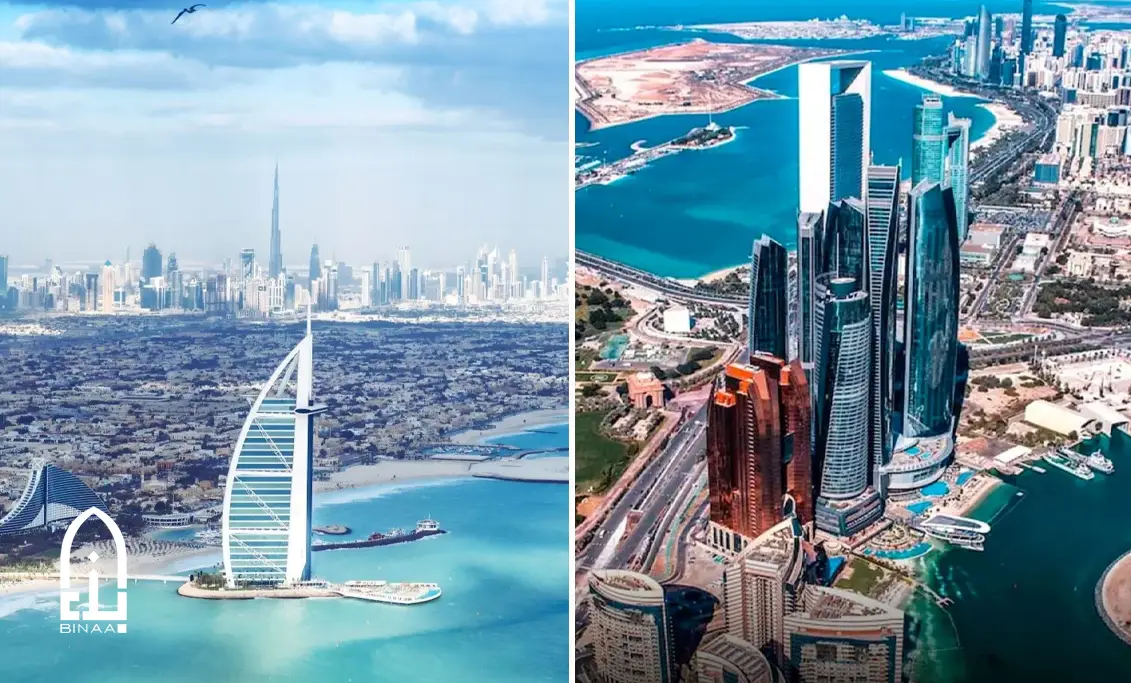
Understanding these characteristics helps investors identify suitable opportunities. Each city offers distinct benefits that cater to varying investment strategies.
Freehold Real Estate: Accessibility and Opportunities
In Dubai, freehold real estate is highly accessible to international investors. Many areas offer diverse property options available for foreigners.
Dubai's market includes luxury apartments, villas, and commercial spaces, appealing to various investment profiles. This makes it an attractive hub for global buyers.
Conversely, Abu Dhabi's freehold real estate opportunities are more limited. The emirate has been gradually opening its market, increasing accessibility to foreign investors. This approach aims at long-term, sustainable growth.
Both cities present unique opportunities for investors interested in freehold properties. However, Dubai's more liberal approach provides immediate access, while Abu Dhabi offers stable, long-term prospects.
Key Points about Freehold Real Estate:
- Dubai:
- Wide range of properties
- Foreign investor-friendly
- High turnover rate
- Abu Dhabi:
- Gradual opening to foreigners
- Focused on sustainability
- Long-term stability
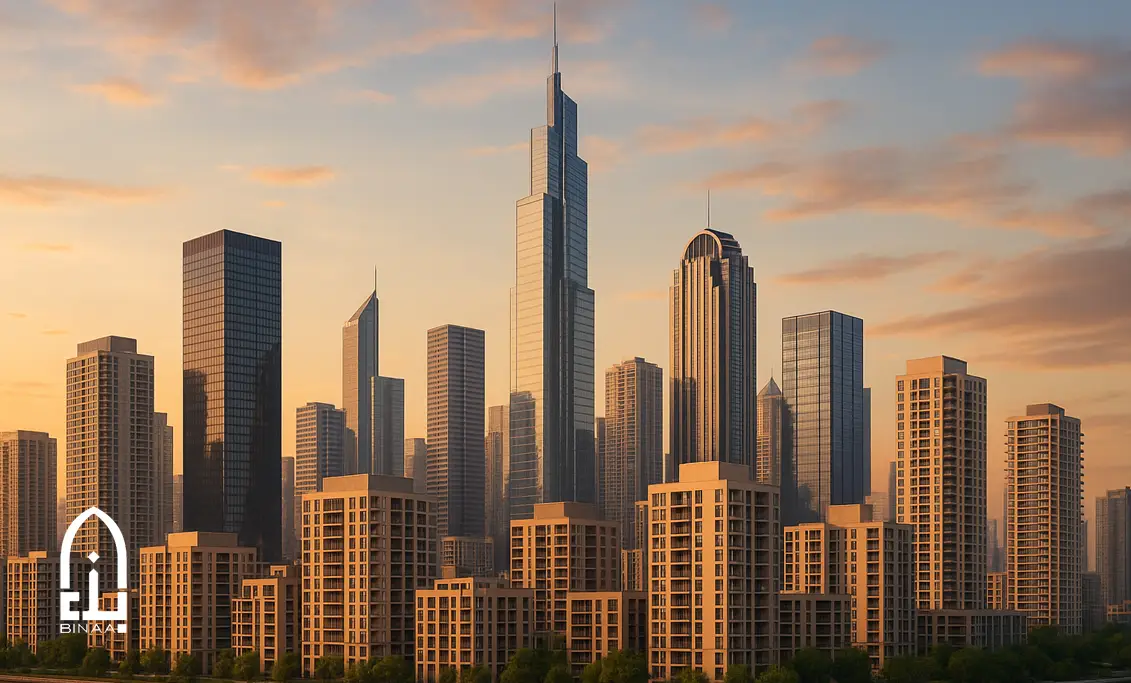
Understanding the nuances of each market aids investors in making informed decisions. Each city caters to different risk appetites and investment horizons.
Real Estate Market Trends: Dubai vs Abu Dhabi
Dubai's real estate market is synonymous with rapid growth and innovation. It features a dynamic environment with skyscrapers and iconic developments.
Post-Expo 2020, Dubai experienced a surge in real estate demand, drawing investors from around the globe. This event boosted the market significantly.
Abu Dhabi, in contrast, enjoys a more measured growth trajectory. The city's real estate market benefits from government support and controlled property supply.
While Dubai thrives on short-term gains, Abu Dhabi focuses on long-term stability. Each city caters to distinct investor interests.
Market volatility is more pronounced in Dubai compared to Abu Dhabi. Investors in Dubai must be prepared for fluctuating real estate prices.
Real estate trends reflect the economic diversification of each city. Dubai's varied sectors contribute to its market's dynamism, unlike Abu Dhabi's oil-dependent economy.
Snapshot of Market Trends:
- Dubai:
- Rapid development
- High turnover
- Innovative architecture
- Abu Dhabi:
- Stable growth
- Government-backed
- Controlled supply
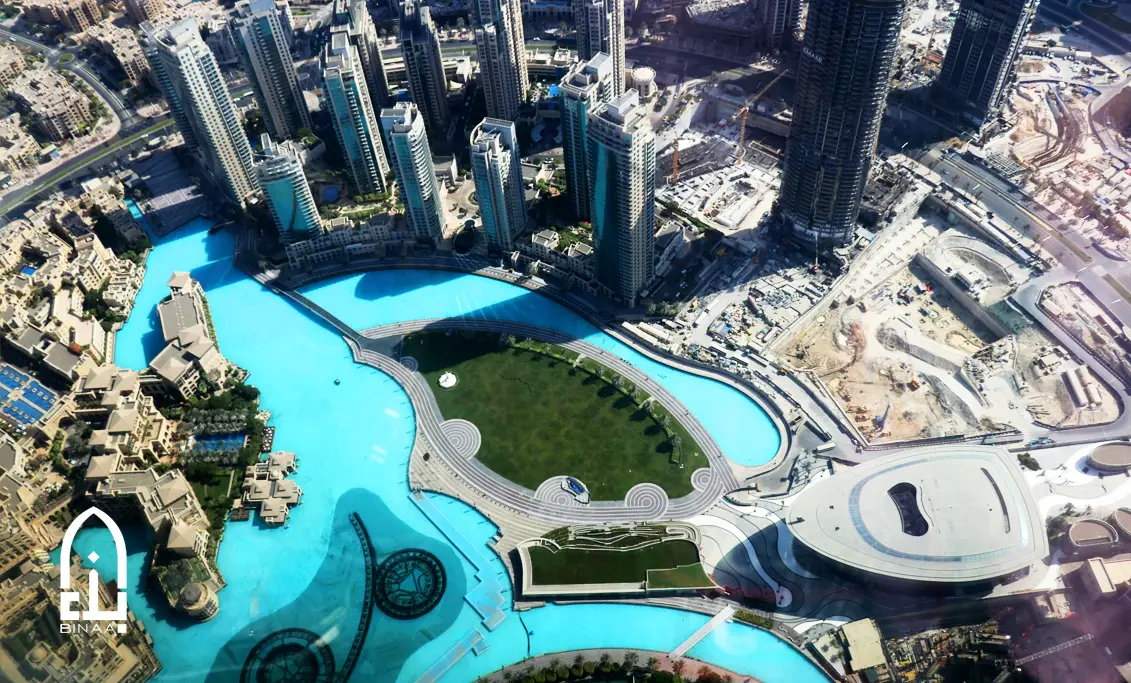
Investors should align their strategies with these trends, choosing the market that best fits their objectives and risk tolerance.
Economic Factors and Diversification
Dubai stands out for its diversified economy, reducing reliance on oil revenue. It thrives on tourism, finance, and trade as key drivers.
This economic diversity attracts a broad spectrum of investors. Dubai offers opportunities across various sectors, enhancing its investment appeal.
Conversely, Abu Dhabi remains more dependent on oil, though diversification efforts are underway. The city invests in infrastructure and sustainable development.
These efforts aim to reduce economic vulnerability and boost non-oil sectors. Abu Dhabi's Vision 2030 plan targets these diversification goals.
Key Economic Highlights:
- Dubai:
- Diverse economy
- Tourism, finance, and trade
- Resilient against oil fluctuations
- Abu Dhabi:
- Oil-reliant
- Infrastructure development
- Vision 2030 for diversification
Understanding these economic factors helps investors assess potential risks and returns. Both cities offer unique opportunities shaped by their economic landscapes.
Rental Yields and ROI: Comparing Returns
Rental yields in Dubai often surpass those in other global markets, providing investors with lucrative returns. Its vibrant tourist sector fuels demand for rentals.
Short-term rental opportunities are abundant, especially with tourists and business travelers. This potential boosts ROI for real estate investors.
Abu Dhabi, however, offers more stable yields, attractive for long-term investors. The steady market reduces exposure to dramatic fluctuations.
The city's focus on education and healthcare adds a consistent demand for properties. Investors seeking stability find this appealing.
Rental Yield Highlights:
- Dubai:
- High rental yields
- Strong tourism influence
- Numerous short-term rental options
- Abu Dhabi:
- Stable rental market
- Consistent demand from education and healthcare
- Long-term investment appeal
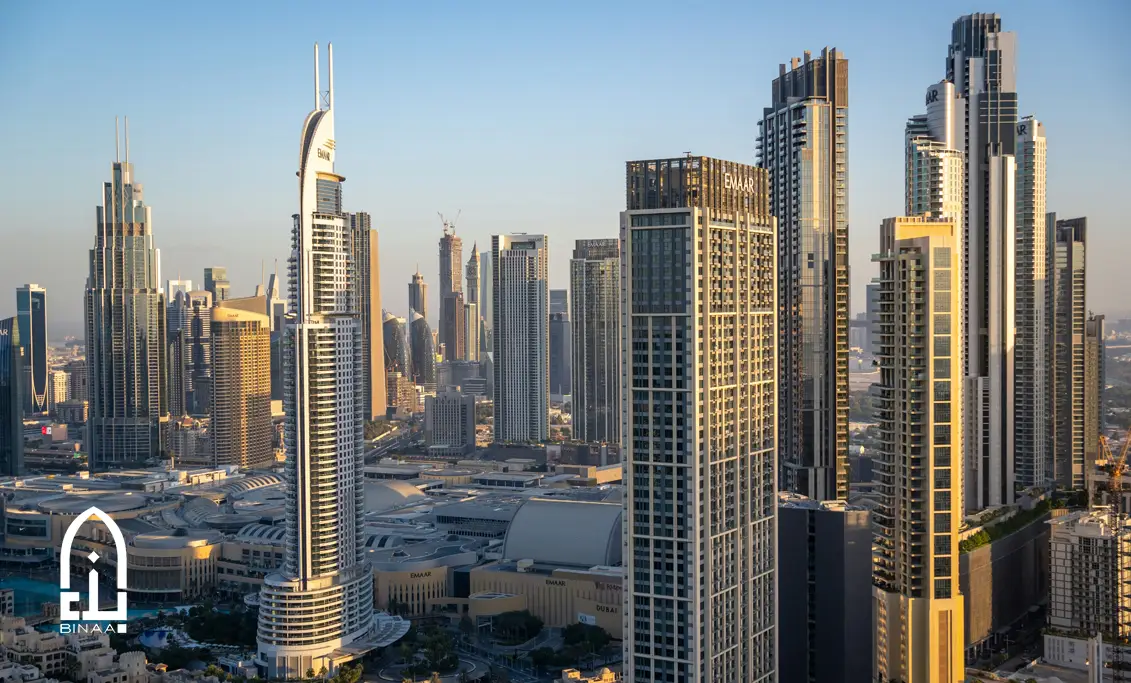
Understanding these rental market dynamics helps investors align strategies with risk tolerance and financial goals. Choose the city that best fits your investment style.
Legal Framework and Investor Protection
Dubai provides a robust legal system, designed to safeguard investor interests. Clear regulations facilitate property purchases for foreigners.
Abu Dhabi is enhancing its legal transparency, gradually opening its market. This shift fosters confidence among international investors.
Both cities have introduced laws to protect ownership rights and ensure market fairness. Such measures reduce risks associated with property investment.
Key Legal Features:
- Dubai:
- Well-established legal framework
- Transparent buying process for foreigners
- Abu Dhabi:
- Improving transparency
- Growing market accessibility
These legal safeguards establish a secure foundation for investors, reinforcing trust in the UAE's real estate opportunities.
Infrastructure and Lifestyle: Impact on Investment
Infrastructure plays a vital role in investment decisions. Both cities invest heavily in infrastructure projects, enhancing connectivity and access.
Dubai is renowned for its high-speed developments, such as the metro and expansive road networks. These facilitate efficient movement across the city.
Abu Dhabi focuses on strategic infrastructure projects aligned with its Vision 2030. These aim to improve urban living and sustainability.
Lifestyle factors also affect property demand. Dubai offers a vibrant scene with numerous entertainment options and luxury amenities.
Abu Dhabi provides a quieter lifestyle with cultural attractions and serene environments. This appeals to those seeking tranquility.
Key Infrastructure and Lifestyle Features:
- State-of-the-art public transport
- World-class amenities
- Growing cultural and recreational spots
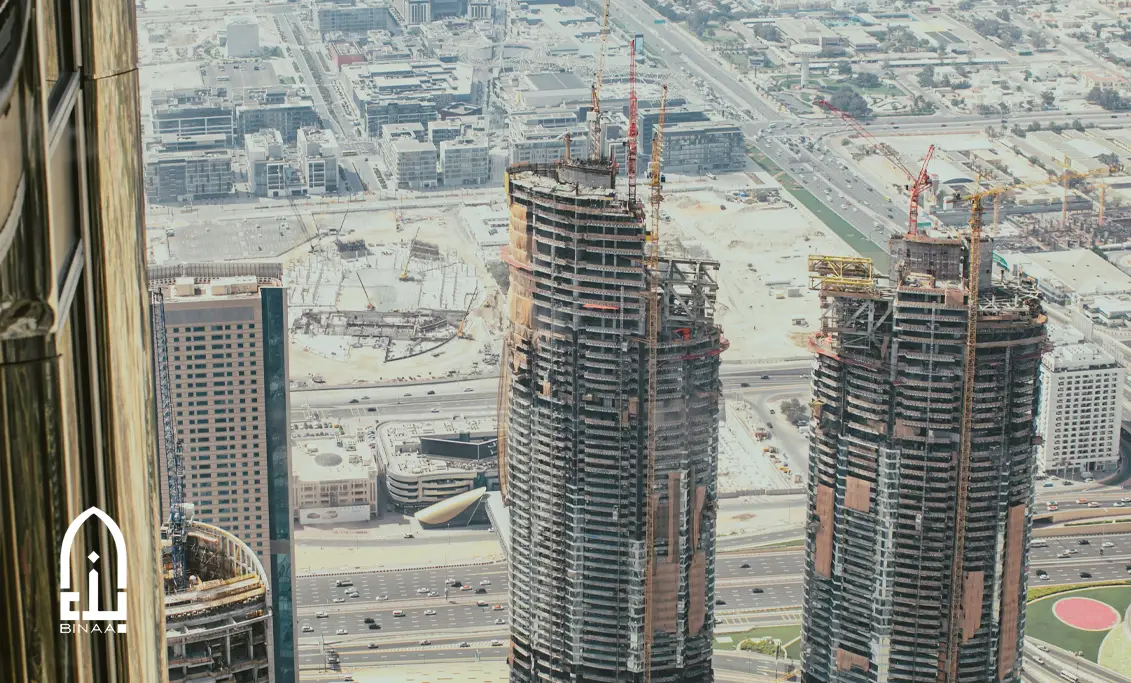
These elements collectively influence investment attractiveness in both vibrant yet contrasting cities.
Sustainability and Future Growth Initiatives
Both cities prioritize sustainable development, shaping their future growth strategies. Abu Dhabi's Vision 2030 emphasizes eco-friendly urban planning and renewable energy projects.
Dubai is an advocate for smart city technology, incorporating green building practices and sustainable transport solutions. These initiatives attract environmentally conscious investors.
Sustainability remains a central theme in both cities’ development agendas, encouraging innovative projects. This focus increases each city's appeal as a forward-thinking investment hub.
Key Sustainability and Growth Initiatives:
- Green building practices
- Renewable energy projects
- Smart city technology
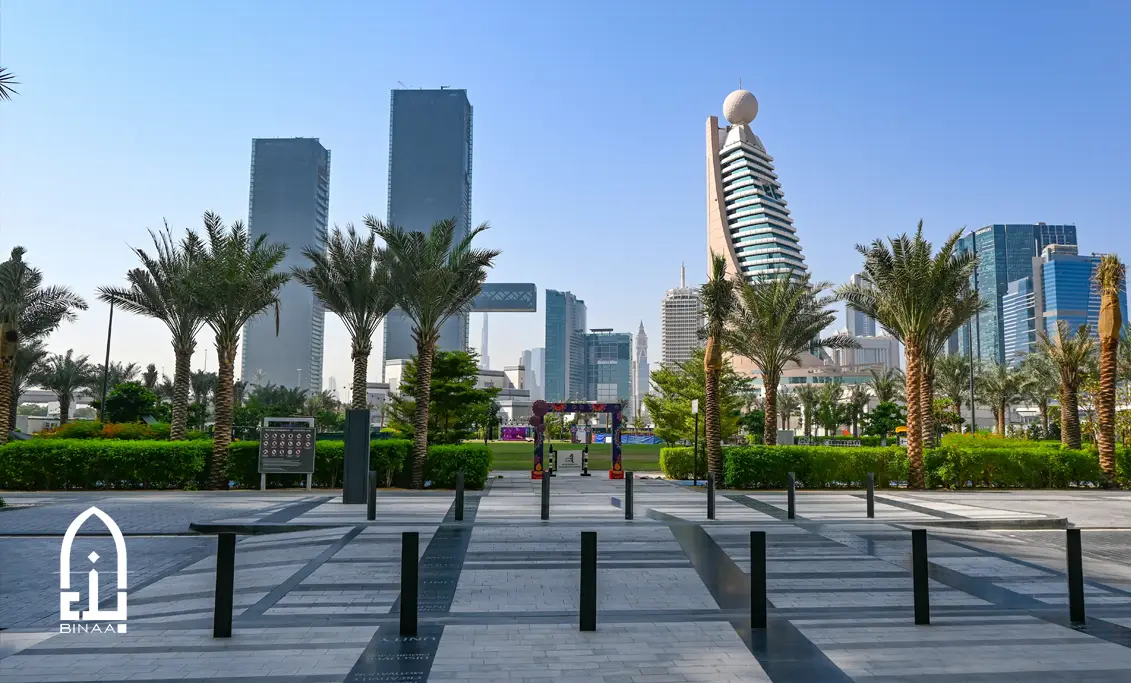
Each city's commitment to sustainable growth positions them as leaders in eco-conscious real estate development.
Key Investment Areas: Hotspots in Dubai and Abu Dhabi
Dubai and Abu Dhabi both feature key investment hotspots offering diverse opportunities. These areas are known for their strategic locations and potential for growth.
Dubai's Downtown and Marina districts are prominent for luxury developments and vibrant lifestyles. These areas attract high-net-worth individuals and international investors seeking significant returns.
In Abu Dhabi, Saadiyat Island and Al Maryah Island are notable investment locations. These offer exclusive residential projects and are hubs for cultural and commercial activities.
Notable Investment Hotspots:
- Downtown Dubai
- Dubai Marina
- Saadiyat Island
- Al Maryah Island
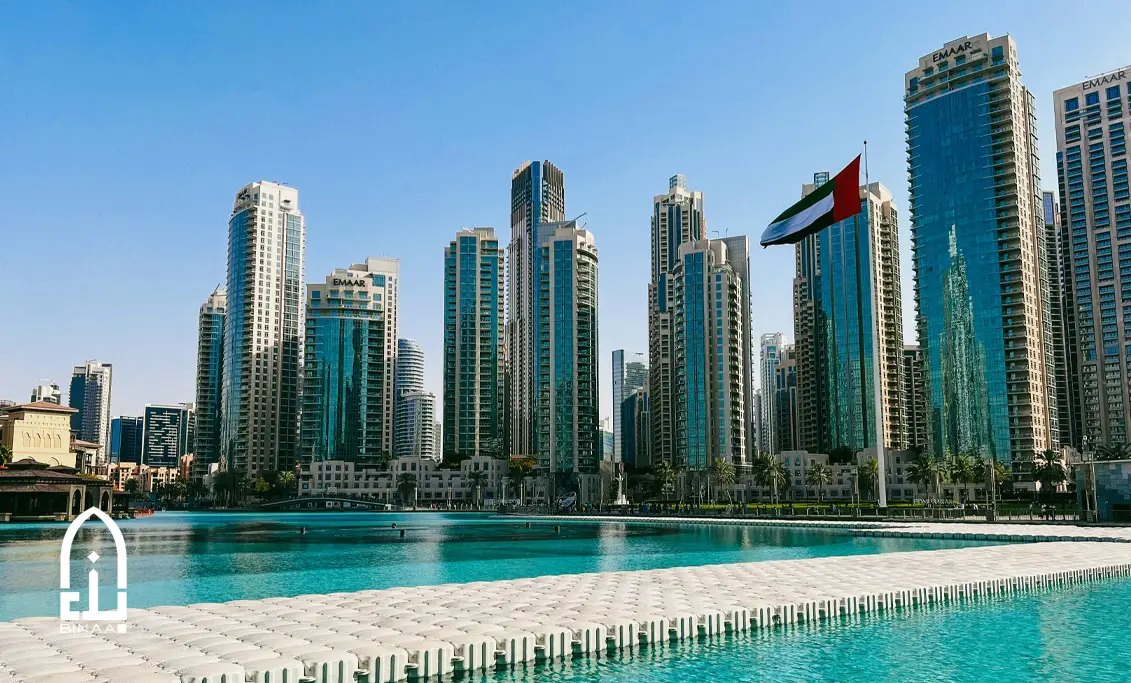
Investors can explore these regions for premium properties, driven by growing demand and strategic urban planning. These hotspots promise long-term value and impressive growth prospects.
Challenges and Risks for Investors
Investing in Dubai and Abu Dhabi comes with distinct challenges and risks. Market volatility is a key concern, especially in Dubai, where fluctuations can impact investment returns.
In Abu Dhabi, the slower market pace may deter those seeking quick gains. Additionally, economic shifts, like oil price changes, can affect investment stability in both cities.
Key Risks:
- Market volatility in Dubai
- Slower pace in Abu Dhabi
- Economic dependency on oil
Investors need to carefully assess these factors when planning their real estate ventures. Understanding market dynamics and potential economic shifts is crucial for mitigating risks.
Which City is Best for Your Investment Strategy?
Choosing between Dubai and Abu Dhabi for investment depends on your goals. Dubai suits those seeking dynamic markets and quick returns.
Abu Dhabi appeals to investors focused on stability and long-term growth. Consider the lifestyle and property types each city offers.
Investment Preferences:
- Dubai: High growth and diversification
- Abu Dhabi: Stability and sustainability
Ultimately, the best choice aligns with your financial goals and risk appetite. Evaluate each city's market trends and economic factors to make a well-informed decision.
Conclusion: Dubai vs Abu Dhabi – Making the Right Choice
Investment decisions are crucial and complex. Both Dubai and Abu Dhabi offer unique opportunities and challenges for investors.
Dubai provides a diverse economy and a vibrant real estate market. It is perfect for those seeking high returns and dynamic growth potential.
Abu Dhabi focuses on stability and sustainable development. It's ideal for investors prioritizing long-term gains with less volatility. Ultimately, the right choice depends on individual goals and risk preferences. Evaluate both cities' strengths to make an informed decision.



